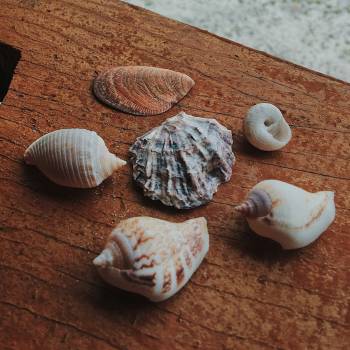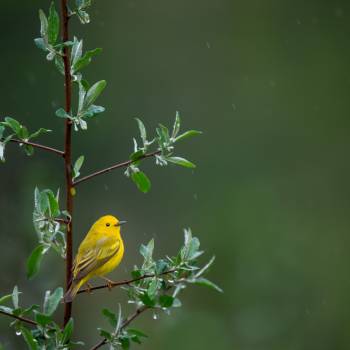We have worries. We have problems. In this dunya, we will constantly face obstacles that cause us great anxiety. But know that none of these matters are greater than Allah subhanahu wa ta'ala. And this is what I want to write today - that we are always in need of Allah’s Protection.
Ibn 'Abbas radhi Allahu ‘anhu narrated:
"I was behind the Prophet (salla Allahu ‘alayhi wa sallam) one day, when he said:
'O young man, I will teach you a statement:
Be mindful (احْفَظِ) of Allah, and He will protect you (يَحْفَظْكَ)...”
[At-Tirmidhi 2516 | Graded Hasan by Darussalam]
This was an excellent advice given by Rasulullah ﷺ to one of his great companions - an advice on how to earn Protection from Allah subhanahu wa ta'ala. Look at the word احْفَظِ. One of its meanings is “guard” or “protect”. So if we were to translate this hadith literally, it would mean: “Guard / Protect Allah, and He will guard / protect you.”
But Allah subhanahu wa ta'ala is above and beyond any imperfection. He does not need any type of protection from anyone whatsoever. So what does “Guard / Protect Allah” mean then?
It means that we carry out what has been established in the shari’ah.
It means doing what Allah has commanded us to do, and steering away from what He has prohibited us from.
It means sami'na wa ata'na (we hear and we obey), and that we don't pick and choose what we want to do, and don’t want to do.
When a believer carries out his obligations that are due upon him, then Allah will protect him. And the more he upholds Allah’s Rights upon him, the more encompassing Allah’s Protection over him will be. This is what the hadith means.
This is also the definition of taqwa: to refrain from what Allah has prohibited, and act upon what He has mandated. Indeed, it is through taqwa that a person attains Allah’s Protection. And there is this absolutely beautiful hadith Qudsi that showcases Allah’s Protection for those who have taqwa:
Abu Hurairah radhi Allahu ‘anhu reported that Rasulullah ﷺ said: “Allah said: I will declare war against him who shows hostility to a pious worshipper of Mine. My servant does not grow closer to Me with anything more beloved to Me than the (obligatory / fardh) duties I have imposed upon him. My servant continues to grow closer to Me with extra (voluntary) good deeds until I love him.” [Sahih Al-Bukhari 6502]
Allah began by stating a declaration of war towards those who show animosity to His pious servants - subhana Allah! Look closely at the next sentence: He subhanahu wa ta'ala said that the fardh (obligatory) duties are the most BELOVED actions to Him - so much so, that we will grow closer to Allah with our fardh ‘ibadah. And only after that, Allah subhanahu wa ta'ala said that a servant continues to grow closer to Him with the nawafil (voluntary) good deeds, until He loves that person.
Compulsory acts of worship are the foundation of one’s Deen - the most BELOVED actions to Allah. So prioritize our five daily salah, prioritize in being dutiful to one’s parents, prioritize Allah’s Prohibition from dealing with riba’ even though the rates are lucrative, prioritize our preparation for Hajj (if one is physically and financially able) even though there are so many other wonderful places that we dream of going, and there are many more examples. This is our starting line. Strengthen the foundation, and then continue with the nawafil. How can we expect to grow closer to Allah and earn His love by doing voluntary good deeds, while skipping the obligations?
The hadith continues; Allah said: “When I love him, I am his hearing with which he hears, his seeing with which he sees, his hand with which he strikes, and his foot with which he walks...” [Sahih Al-Bukhari 6502]
Have you ever experienced a feeling of sudden aversion to something sinful? For example, you find yourself suddenly disliking listening to music or gossips, and you find yourself inclining towards listening to Qur’an recitations instead.
This is actually Allah’s Protection over you! When Allah says “I am his hearing with which he hears”, it means that Allah guides his hearing so that he does not listen to what is haram. A person who is protected by Allah, suddenly will find himself hating listening to hearsays and slanders, hates to backbite and lie - even though he may have been the person who used to indulge in these matters the most.
It is the same with his sight and his limbs - Allah subhanahu wa ta'ala protects him by turning him away from acts of disobedience. He protects his eyes from looking at what is haram, protects his hands from holding the haram, and protects his legs from walking to the haram. Instead, He will guide his ears to hear, eyes to see, hands to hold, and legs to walk to what is pleasing to Him so that the person becomes eager in seeking the ridha of Allah through many acts of good deeds, until he meets husnul-khatimah (a good end). Allahumma, make us one of them, Aameen!
Brothers and sisters in Islam, when Allah loves a person, not only will He protect him, but Allah will also protect his children and their rizq (sustenance). This is highlighted in one of the ayah in Surah Al-Kahf, where Allah says:
"(Al-Khidr said to Musa:) And as for the wall, it belonged to two orphan boys in the town; and there was under it a treasure belonging to them; and their father was a righteous man, and your Rabb intended that they should attain their age of full strength and take out their treasure as a mercy from your Rabb. And I did them not of my own accord. That is the interpretation of those (things) over which you could not hold patience." [Surah Al-Kahf 18: 82]
When Prophets Al-Khidr and Musa ‘alayhumas-salaam reached a town, they found a wall that was about to collapse. Behind that wall was a treasure belonging to two orphan boys in that town. Allah subhanahu wa ta'ala inspired Prophet Al-Khidr to fix the wall, so that the treasure remained hidden until the two orphans became adults. The question is: Why did Allah protect the orphans and their sustenance throughout those years?
Because their father was a righteous man. What is mentioned in this ayah is the piety of the father, and not the orphans. It was due to the father’s righteousness, that Allah protected his children and their sustenance, even after he had passed away.
Our piety greatly influences the fate of our children. When we strive to become people of taqwa, not only will Allah protect us, but our future progeny as well. We are currently living in an era of great fitnah (trials), and we often worry about our children’s iman and their future. Allah subhanahu wa ta'ala says:
“...and whosoever has taqwa of Allah, He will make his matter easy for him.” [Surah At-Talaq 65: 4]
Brothers and sisters in Islam, we are weak and constantly in need of Divine Protection. So “Protect” Allah, and in turn, He will protect not only us - but our children and their sustenance as well. Trust that Allah, the Ever-Living, will take care of everything for us - even after we have long passed away.
When Allah loves you, He will protect you in the most amazing, subtle ways.
May Allah make us people of taqwa, people whom He loves, and grant us His protection in this life and the hereafter, Aameen.
— Aida Msr 🌸
_____
References:
- Tafsir Ibn Kathir
- Sunnah.com
- IslamQA.com
 Aida Masuri Mustafa
Aida Masuri Mustafa 




